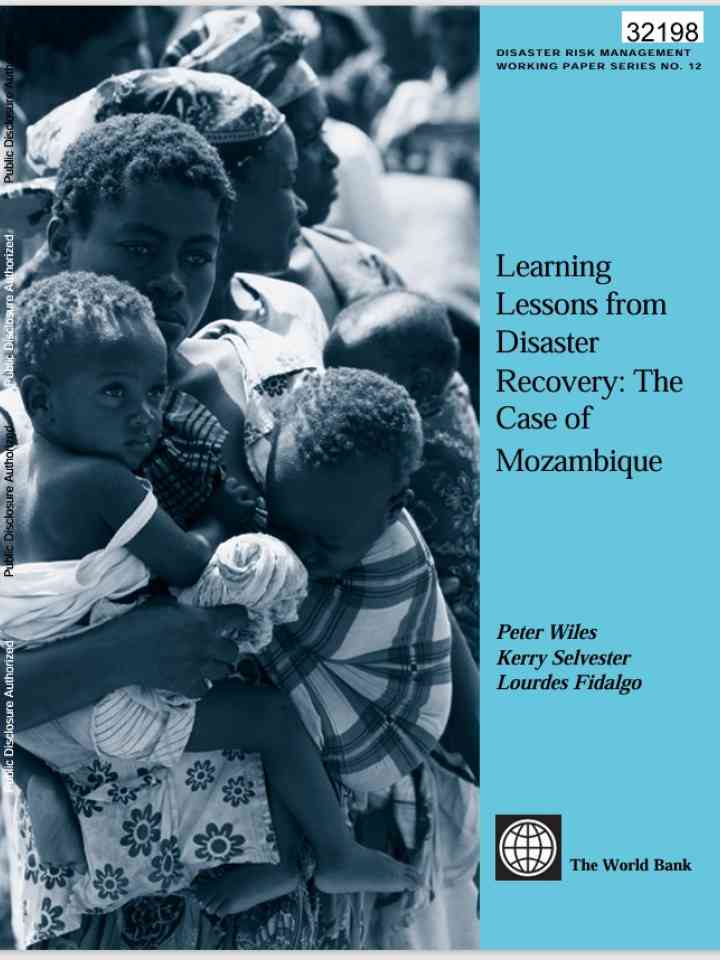Learning lessons from disaster recovery: the case of Mozambique
This report analyzes the strengths and weaknesses of recovery assistance from governments, donors, and civil society after the disasters occurred.
Mozambique offers an example of a post-conflict country faced with major natural disasters. It also offers an example of recovery in an extremely poor, and primarily subsistence livelihood population, but in a country favored by donors, and receiving substantial amounts of both relief and recovery assistance. The review provides an overview of the recovery processes, and highlights livelihoods and agriculture.
Mozambique's recovery from the 2000 and 2001 floods took place in the context of the country's wider reconstruction and development following the end of the war in 1992. The 1999 National Policy on Disaster Management marked a shift from a reactive to a proactive approach to disaster management aimed at developing a culture of prevention.
The government of Mozambique's objectives and strategies for recovery after both the 2000 and 2001 floods were similar. They aimed to move as quickly as possible from the relief mode to a recovery agenda. The overall assessments of recovery needs were made rapidly after the floods by the Bank, and the government in order to shift from emergency relief, towards preparing for a donor conference. Most post-flood recovery was undertaken within the framework of existing development programs.
Explore further
